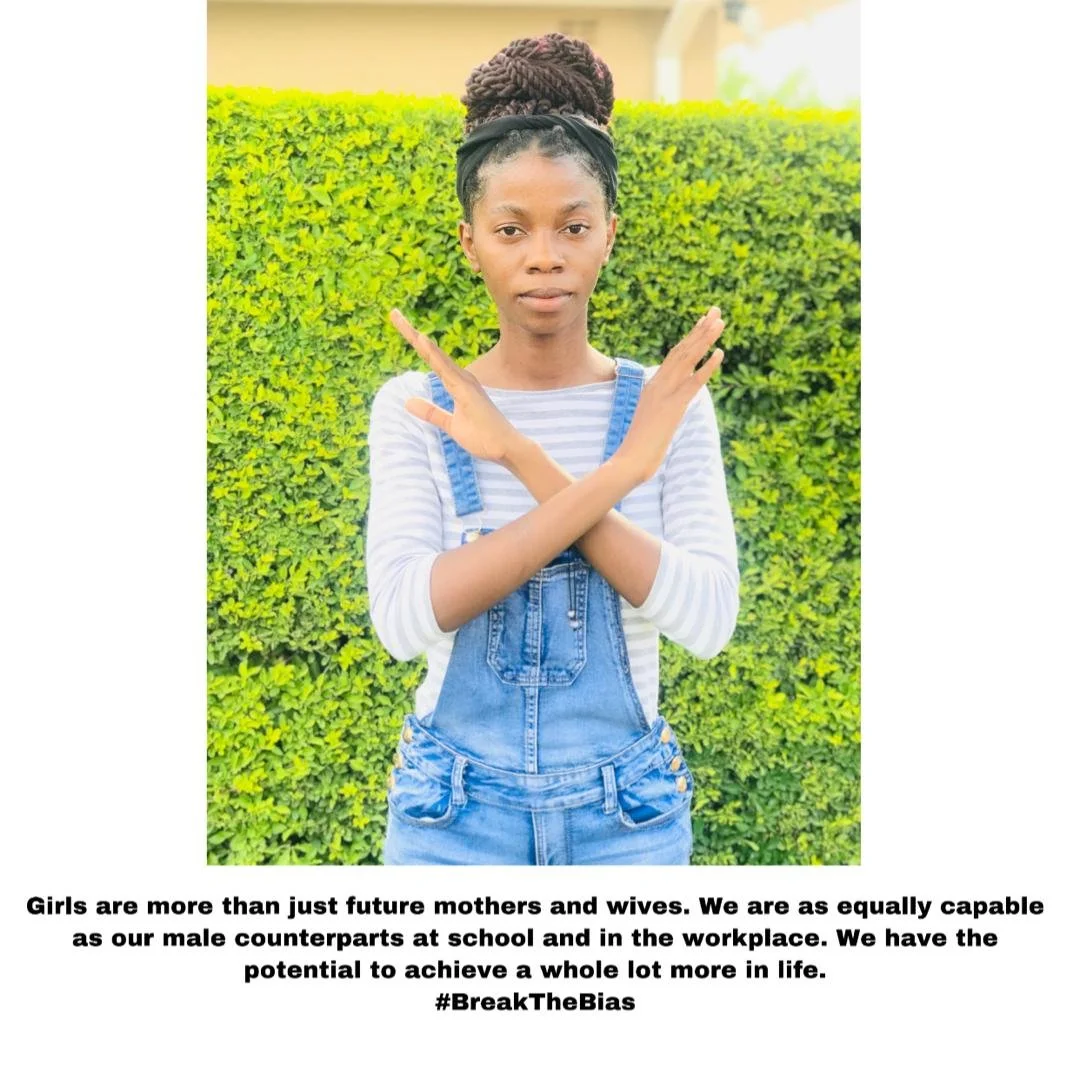Working Together to Break the Bias - Part 2
To celebrate Women's History Month, we have a series of blog posts by Samantha Nontsikelelo Dube, focused on the #IWD2022 in-person meet up of the participants of Amanatombazana in Bulawayo, and the important conversations they had around gender inequality, as well as how to #BreakTheBias.
Did you miss Part 1? Read it here.
Picking up where we left off last week, our discussion dove into ways we, as girls and women in Zimbabwe, can take steps to break the bias. How can we pave the way for future generations to have equal opportunities and hope for gender bias to be a thing of the past?
Right now, a lot of young women are often sidelined from attending school due to religious and cultural reasons, favoring their male counterparts. The same can be observed in cases where there are insufficient funds to educate all the children in Zimbabwean families. Young women and girls who find themselves in these situations will either be married off or made to stay at home. Moreover, women and girls are often exploited for free labor, with most of the tasks of raising children and taking care of the home being left up to them entirely.
The harm of such narratives that portray women as nurturers and a resilient group, has implications that go beyond the challenges faced at home: they also impact other areas of a woman’s life including health, the workplace, academic and religious institutions amongst others, which shape the woman’s lived experiences.
Also, what happens to the woman who does not fit into mainstream narratives and understandings of what it is to be a woman or a girl? The woman who has chosen not to bear children, the woman living with disabilities that are disproportionately affected by these norms we adhere to? These gender biases are harmful for women and that they, without fail, lead to abuse, a poor quality of life, and in some instances, death.
Amantombazana offers us a safe space and community making it possible for us to share our experiences, as well as to offer what we deem as plausible solutions that can be applied in addressing gender inequality. These are key steps towards a world where women can take initiative in addressing issues that affect them, as well as drawing up the solutions for women, by women.
Read on next week for the conclusion of our discussion.


